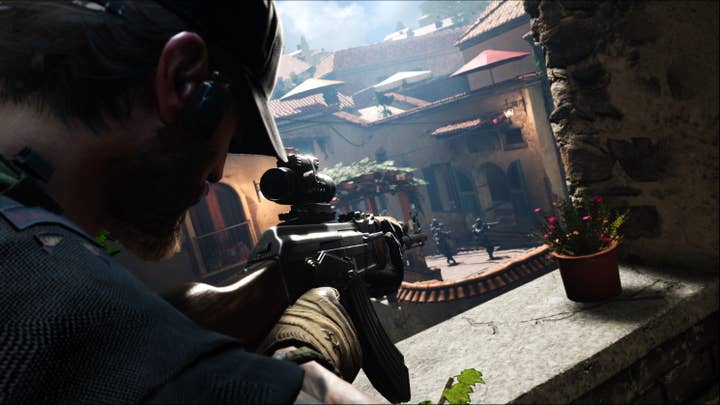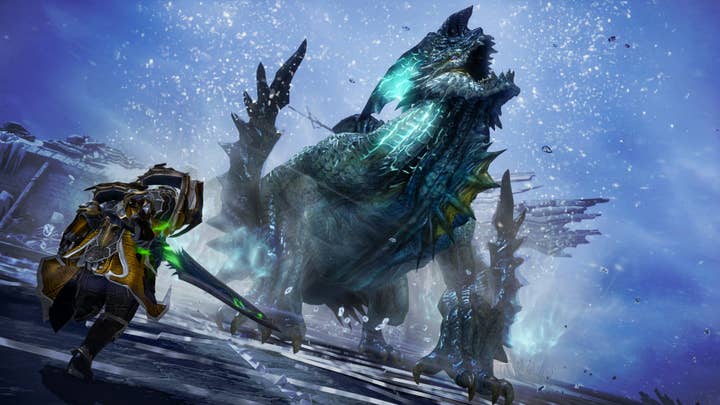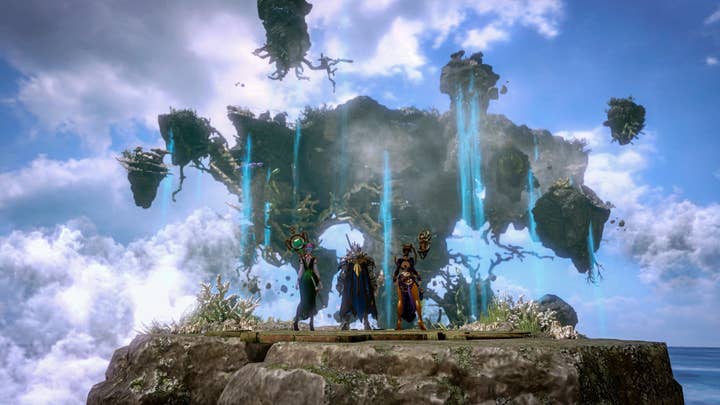Smilegate at 20: Growing beyond Crossfire, reaching beyond games
VP of business development Harold Kim on how the Korean company landed in the West with Lost Ark and Epic Seven, and where its transmedia ambitions will take it in the future
"From the Western perspective, in the past few years, Smilegate has been slowly entering into the Western market with the mission to become recognized as a major player," Smilegate VP of business development Harold Kim tells us in a recent conversation around the company's 20th anniversary. "But we're still baby-stepping. I think the perception in the US is not there yet, but we're slowly being recognized."
For much of its lifespan, Smilegate has been synonymous with Crossfire, the phenomenally successful 15-year-old free-to-play first-person shooter with more than one billion registered users, a concurrent user record of 8 million, and minimal recognition among Western consumers.
"It's been a bumpy ride," Kim says when tracing the roots of Crossfire's success. "When we first launched the game back in 2007 for the Korean market, we didn't do very well."
As Kim explains, the Korean market already had a few similar free-to-play first-person shooters at the time, so Crossfire had difficulty building the critical mass of a player base that would help fuel the free-to-play game's success.

"We had to look for markets that didn't have these pre-established communities in the genre," Kim says. "The largest one was China and we decided to go all-in on China at the time."
Smilegate partnered with Tencent and launched Crossfire in China later the same year, where it took off.
Despite the game's overwhelming success, it has only gained modest traction in its home country.
"Crossfire in Korea hasn't been a big game," Kim admits. "But it's our bread and butter and we have to do it. We put a lot of investment into it, a lot of marketing. And that's making Korea an important market for us, but the actual revenue numbers or community size in Korea is not that big."
"[The US and the West] want good visuals, they want up-to-date features. And a lot of those things were missing, by Western standards"
Unfortunately for Smilegate, its efforts to make Crossfire click in the West weren't much different in terms of success. While Kim believes the game itself was solid, he noted that it was built on technology that would have been current in 2002, and likely felt dated to American consumers when they got their first look at it many years later.
"In the US and Western markets, [a game] really needs more than fun," Kim says. "They want good visuals, they want up-to-date features. And a lot of those things were missing, by Western standards."
Beyond that, he thinks Smilegate had trouble getting the franchise's backstory across in the Western localization.
"There are some very interesting developments we've touched in the Crossfire universe in the story," Kim says. "There's no right side. There's no bad people or good people, some interesting philosophy the game has, but we've never been able to express that in a meaningful way. And especially when we look at the Western market, they want to understand the universe, the characters, they want to understand what the story is. And we haven't been able to provide that."

The company has started to take steps toward addressing both of those issues with titles like this year's Xbox revamp Crossfire X and the real-time strategy spin-off Crossfire Legion, but Kim says those are baby steps compared to what the company is planning for the future.
For roughly a decade after Crossfire's launch, the story around Smilegate was that it had a huge hit that it couldn't make work in the West.
Then came the global launch of the mobile turn-based RPG Epic Seven in 2018. The game not only became Smilegate's second big IP, it also became its first big title in the West, with more than half of its revenues from from the United States. (Kim said Korea and Japan have also been big markets for the title.)
That same year, Smilegate launched Lost Ark in Korea and noticed that it had unexpectedly popped on Twitch, with Kim saying the unlocalized version of the game cracked the top ten most popular games list on Twitch in the US.
"We saw huge potential there," Kim says, noting it led to Smilegate partnering with Twitch parent company Amazon to bring Lost Ark to Western markets.
"Amazon not only has Twitch and [Amazon Web Services], they wanted to come big into the gaming space, and we immediately shared the same vision," he adds. "They needed a big title, and we had a big title. They were investing heavily into the market. They had the knowledge and understanding of how to [reach] influencers and do the marketing. I think we came to a good result with the collaboration."

Earlier this year Lost Ark launched on Steam and had 1.3 million concurrent users on its second day of release. The game has more than 20 million users worldwide in total, and has given Smilegate three major IP to build off of in the future.
"A lot of mistakes are made when whoever the IP owner is wants the IP to be the center of every aspect in the transmedia space"
Now that it has grown its gaming business this far beyond Crossfire, Kim says the goal for the next 20 years of the company is to become a leader in the entertainment space more broadly, including TV and film. It's a refrain we've heard a lot from game companies, almost as much as we've seen transmedia efforts fall on their faces.
But Smilegate has already had some success on this front, Kim notes, with a Crossfire TV series in China collectively accumulating more than 3 billion views.
"A lot of mistakes are made when whoever the IP owner is wants the IP to be the center of every aspect in the transmedia space," Kim says. "Sometimes it doesn't have to be the center. For example, our Crossfire [TV series] was a love story in esports that happened to have Crossfire in the background.
"You have to have a good story and a good experience. That has to come first, and then you have a better chance of succeeding in the bigger scheme."
Kim knows it's a tall order to realize ambitions like Smilegate's.
"I don't think Smilegate can do this alone," he says. "There's so much talent in the Western territories we would like to partner with and share that goal together."
He points to the company's deal with That's No Moon for a narrative-driven action-adventure game and an open-world AAA title developed in its Barcelona studio as examples of its desire to look beyond its traditional talent base to explore new opportunities. He adds that company continues to look for more such partnerships, whether they involve extensions of Smilegate's existing IP or original titles.
Despite the long road and many struggles to breakout beyond the one-dimensional success of Crossfire, Kim says Smilegate never considered scaling back its ambitions and simply maximizing the shooter franchise's success in markets where it was already big.
"That was never an intent from Smilegate side," Kim says. "We do value our Crossfire IP very importantly, but we're very keen to develop new IPs. The goal for Smilegate is to make these IPs into a long, sustainable – not just a business model, but IPs that can be passed along through generations and be loved by fans not just as a game where they spend money. That is the goal to us."

